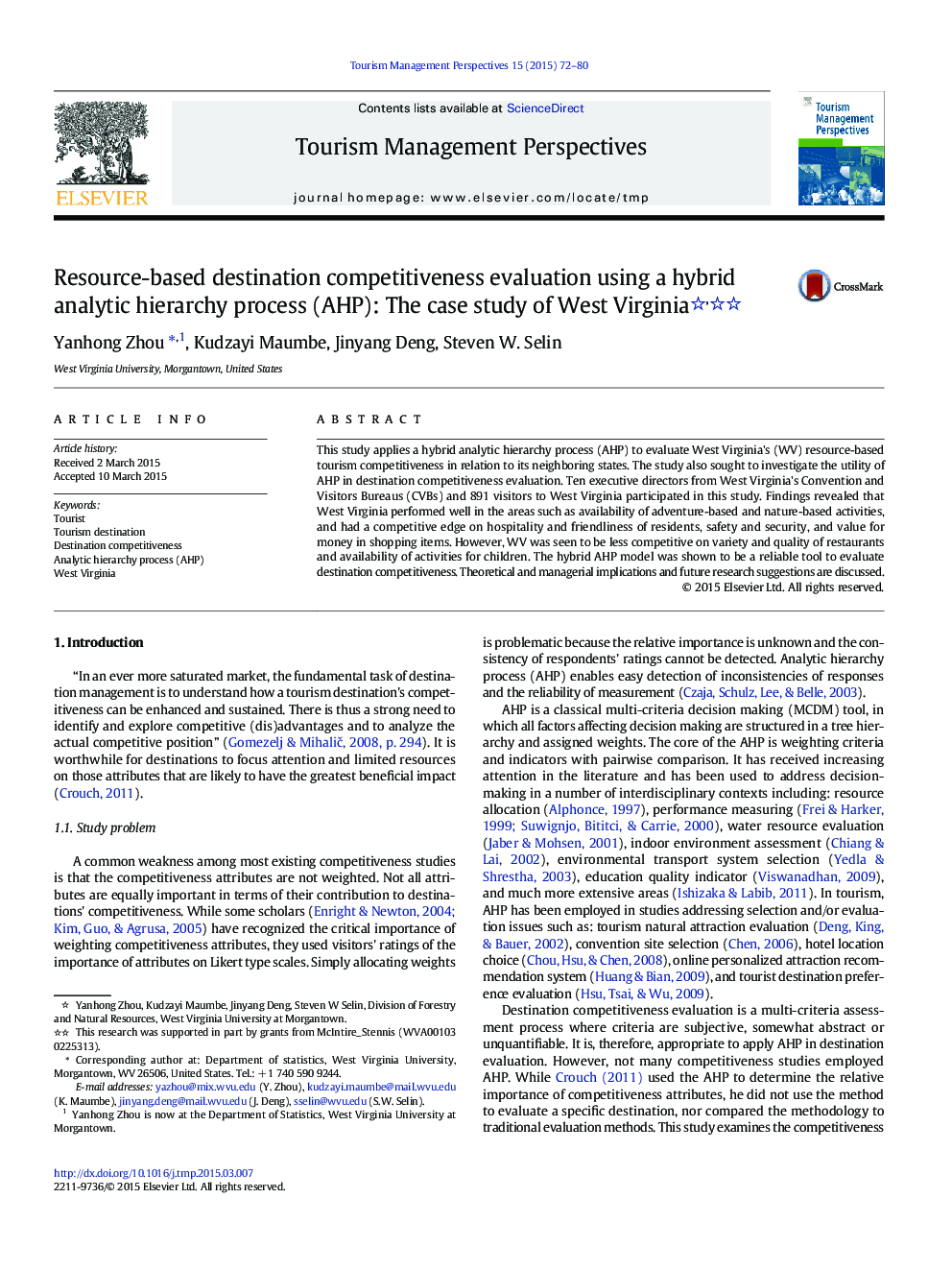| Article ID | Journal | Published Year | Pages | File Type |
|---|---|---|---|---|
| 1013676 | Tourism Management Perspectives | 2015 | 9 Pages |
•A hybrid analytic hierarchy process (AHP) was used to evaluate West Virginia's destination competitiveness.•West Virginia performed well in the areas such as availability of adventure-based and nature-based activities.•However, it was less competitive on variety and quality of restaurants and availability of activities for children.•The hybrid AHP model was shown to be a reliable tool to evaluate destination competitiveness.•The questionnaire can be replicated online.
This study applies a hybrid analytic hierarchy process (AHP) to evaluate West Virginia's (WV) resource-based tourism competitiveness in relation to its neighboring states. The study also sought to investigate the utility of AHP in destination competitiveness evaluation. Ten executive directors from West Virginia's Convention and Visitors Bureaus (CVBs) and 891 visitors to West Virginia participated in this study. Findings revealed that West Virginia performed well in the areas such as availability of adventure-based and nature-based activities, and had a competitive edge on hospitality and friendliness of residents, safety and security, and value for money in shopping items. However, WV was seen to be less competitive on variety and quality of restaurants and availability of activities for children. The hybrid AHP model was shown to be a reliable tool to evaluate destination competitiveness. Theoretical and managerial implications and future research suggestions are discussed.
